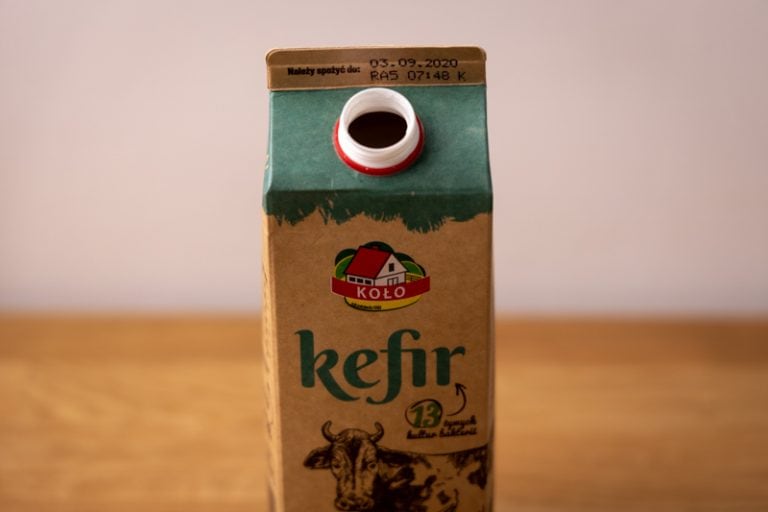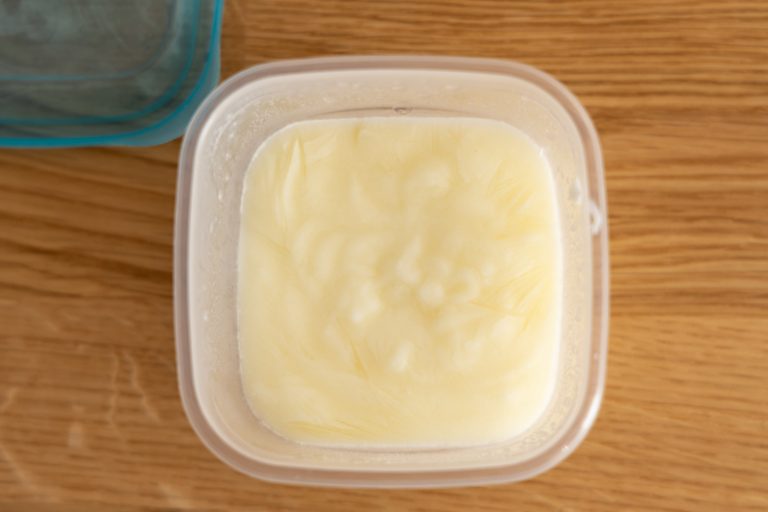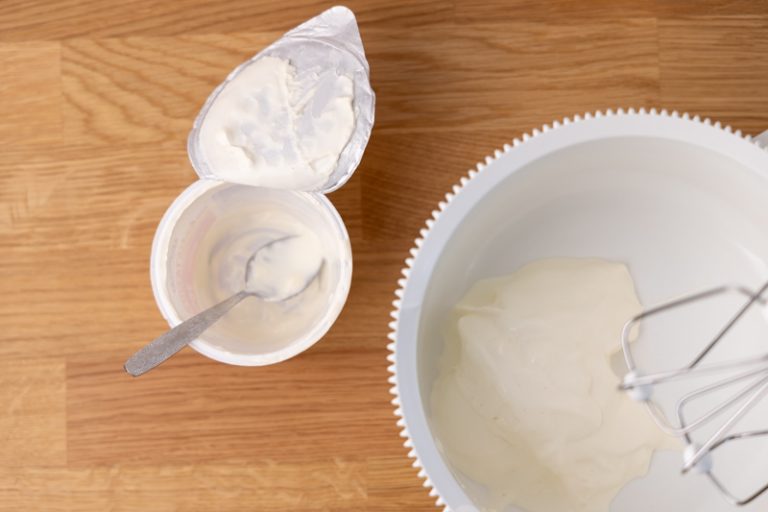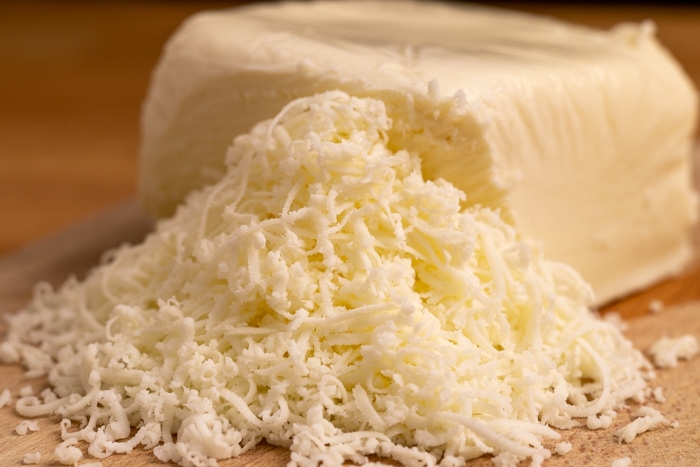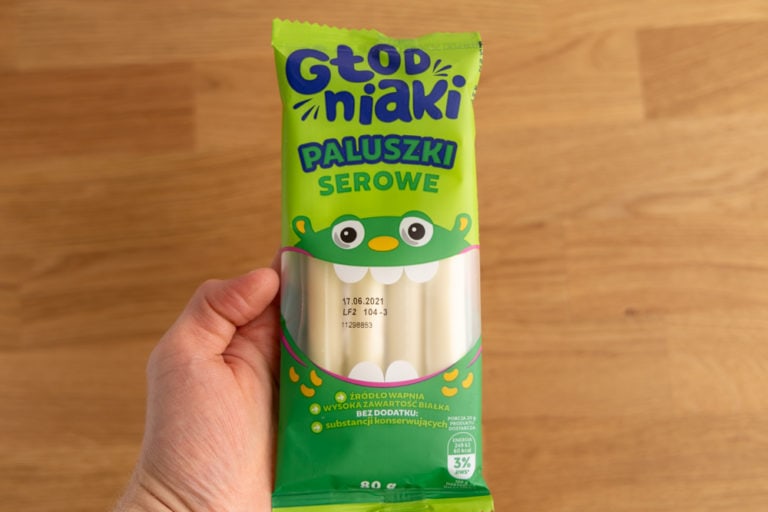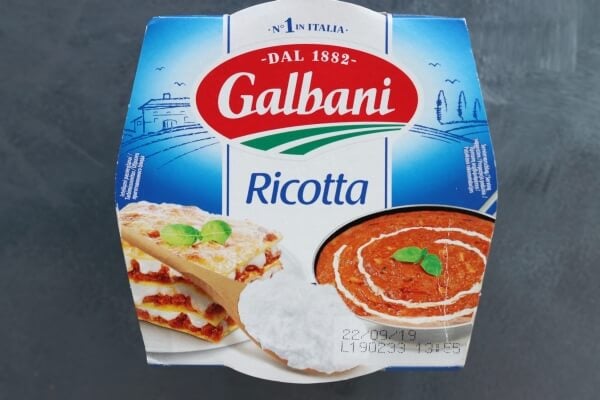How Long Does Ghee Last? Does It Ever Expire?
Got a half-open ghee jar and not sure how long it can sit in storage? How long does ghee really last?
Or yours is way beyond the printed date, and you need to know how to tell if ghee is bad.
Here’s all you need to know about the shelf life and spoilage signs of ghee.
While ghee and clarified butter aren’t exactly the same thing, they’re similar enough so that the shelf life and spoilage for ghee apply to clarified butter, too.
Does Ghee Ever Go Bad?

Yes, ghee goes bad eventually, but it typically lasts way beyond the date printed on the label. As long as you store it sealed tightly in a fairly cool and dark place, it’s going to last way beyond the date printed on the jar.
So, let’s talk about the shelf life of ghee.
How Long Does Ghee Last?

Unopened ghee lasts for 12+ months without refrigeration and months longer if you place it in the fridge. Once you open the jar, ghee is freshest for the first 3 months but retains good quality for at least another 3 to 6 months, even if you don’t refrigerate it.
Store-bought ghee has all the milk solids and moisture removed, meaning it’s pure fat. That’s why it has a long shelf life, similar to the long storage time of bacon grease, lard, or Crisco.
That also means you don’t need to take the date printed on the label too seriously. It’s just a best-by date informing how long the product will be at its freshest and has little to do with spoilage.
So if your ghee is several months past the “expiration date,” it’s likely still okay to use. Just run it through our list of spoilage signs (listed below) to ensure your “expired” ghee is safe for consumption.
Now, you might be wondering if opening the jar changes the shelf life of ghee. Let’s tackle that.
Unopened vs. After Opening
Most sellers recommend using ghee within 3 to 6 months of opening. But that doesn’t mean the fat will go rancid if you leave it in storage for a few weeks (or months) longer.
As mentioned earlier, ghee has all the milk proteins and water removed, making it much more stable than regular butter. So, while it’s true that access to fresh air will speed up the rancidification process, it doesn’t change the storage time that much.
(At least as long as you don’t leave the fat on the counter and with no lid on, of course.)
In other words, if your ghee jar suggests using up the fat within six months of opening, and your jar has been opened for more than a year, the fat is probably still fine to use.
Now, what about homemade ghee?
Homemade Ghee
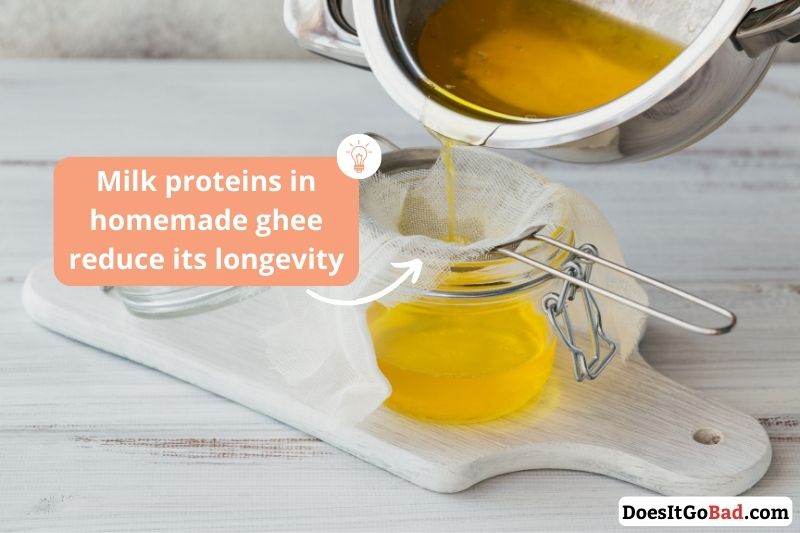
Homemade ghee typically retains quality for about 3 months at room temperature or up to 12 months if refrigerated, assuming no changes in smell, appearance, or taste. To ensure that, use clean utensils and jars when preparing ghee and refrigerate the fat once it cools down.
The main difference between homemade and store-bought ghee is that the former typically has some leftover milk proteins that haven’t been removed during the cooking stage. The result is that homemade ghee, due to those milk solids, is less stable than its commercially-cooked counterpart.
Because of that, homemade ghee doesn’t last nearly as long and is much more prone to spoilage. So it shouldn’t come as a surprise if your homemade ghee smells rancid or tastes somewhat off after a few months of refrigeration.
Speaking of going bad, let’s talk about ghee spoilage.
How to Tell if Ghee Is Bad?

Your ghee is bad if it smells rancid (think sour or oxidized), has become grainy or clumpy, is moldy, or has lost its nutty taste and is now bitter, sour, or overall unpleasant. If none of these signs are present, your ghee is probably okay to use.
Here are the details on the spoilage signs of ghee:
- Off smell. A bitter, sour, or off-putting smell is typically the most obvious sign that oil has gone rancid. And it’s no different for ghee. If your ghee smells weird, you have rancid ghee on your hands.
- Altered taste. A flavor change is another sure sign of spoilage for fat-based products, though it’s not as common as a smell change. If your ghee is no longer slightly sweet and nutty but instead tastes bitter or has a sour flavor, toss it.
- Mold. Ghee won’t grow mold unless you help it. But anything could happen if you introduce any foreign particles to the jar via dirty utensils, cross-contamination, or not sealing it tightly. So, if you notice something dark growing on the surface, it’s time to let the fat go. Of course, if it’s only a tiny dot or a small fuzzy area, you can remove it (with excess) and use the rest if you’re comfortable with that. Ghee is a solid product, so mold isn’t likely to penetrate it further beyond where it grows.
- Texture change. Similar to mold, texture change isn’t that common for ghee. But if yours has become grainy or clumpy, assume it’s turned and is no good.
Ghee melts at about 76°F (32°C), so if you leave it at room temperature and it’s in a hot place, it will melt. You can still use just like you can use melted coconut oil, but if the temperature is so high, refrigerating the fat is a better option.
As usual, if there’s anything else that seems off, discard the ghee and open a fresh jar. Better safe than sorry.
Rotten Records: Share Your Snap!
Caught some food past its prime? Upload your photo to “Rotten Records” and help others spot the signs of spoilage. Every image makes our food community safer and more informed!
